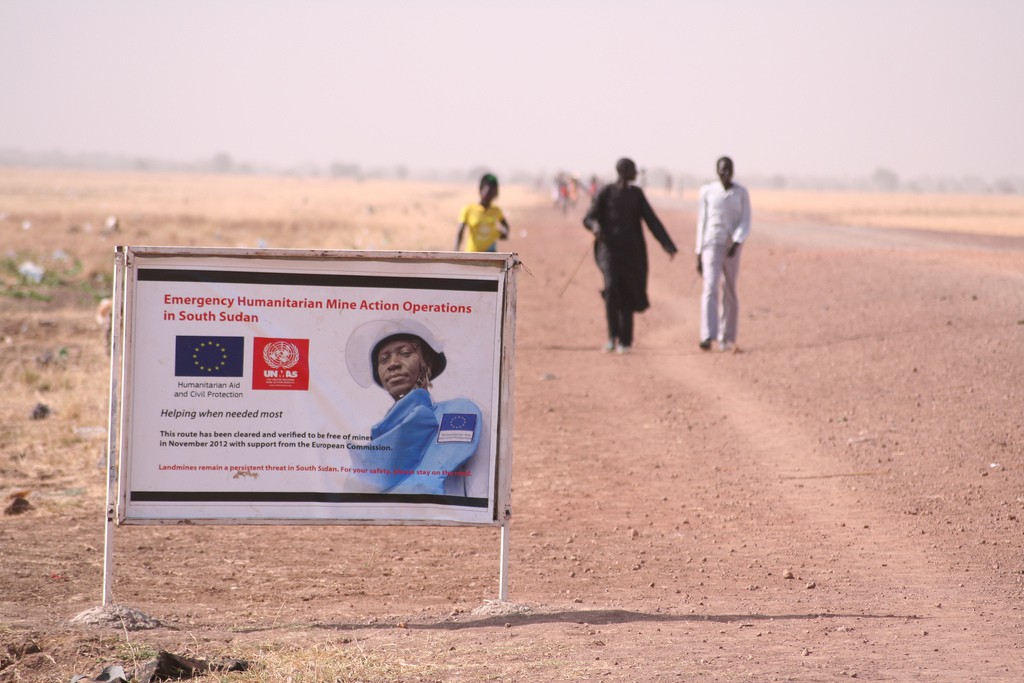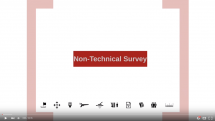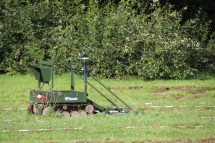South Sudan: Removing mines and other explosives threats in the world's newest country
After 20 years of civil war, South Sudan seceded from Sudan, becoming the world’s youngest nation – and one still reeling from the fall-out of the fighting. Swaths of the new country remain contaminated with landmines and other explosive remnants of war, causing the land to lie fallow and preventing infrastructure from being built. In 2010 to 2011, in a resurgence of conflict, along the border between Sudan and South Sudan left numerous roads re-mined and closed once again to civilian and humanitarian traffic.
The European Commission’s Humanitarian Aid and Civil Protection department (ECHO), through its partner the United Nations Mine Action Service (UNMAS), provided support to clear routes of landmines. This not only saved the lives of many local people but also re-opened the roads for humanitarian actors to provide critical assistance to communities along those routes.
“Armed groups have been operating and laying new mines in the northern border states of South Sudan since November 2010,” said Lance Malin, UNMAS Programme Manager. “This has resulted in a serious spike in mine-related incidents”.
During the most recent conflict in the northern border states of South Sudan, UNMAS reported over 75 victims, over half of which were fatalities. Due to the lack of access and poor connectivity in some parts of the northern border region, especially in Upper Nile State, it is anticipated that the number of accidents and fatalities is actually far greater as many incidents go unreported.
UNMAS, through support from ECHO, conducted route verification along major roads, focusing on Unity State, which has been especially hard-hit. Clearance activities involve a number of different techniques including mechanical equipment, manual clearance teams and mine-detecting dogs. Following clearance and the verification that no landmine and other explosive remnants of war remain, the routes are re-opened.
One route recently cleared by UNMAS serves as the link between the towns of Riatnabol and Abiemnom in Northern Unity State, a key transport network in the state. The route had been closed following a mine strike along the road that killed one person and injured four others in 2011. Following clearance of this road, UNMAS travelled with the Abiemnom County Commissioner to formally re-open it, and the team met with locals from the surrounding villages, Bumbill, Abyei-Nyng and Gol.
The tribal elder from Bumbill admitted his village’s dependence on the road. “Without it, we are cut off from nearby towns. People were afraid to use the road after the mine explosion. We are grateful for your help in making the road safe again. Many people now use our road.” The Abiemnom County Commissioner, when formally opening the road, thanked the international community for their efforts in improving safety for his people.
Through its partnership with ECHO, UNMAS was able to open over 650 km of roads in 2012. These routes, previously closed to humanitarian and local traffic, are now helping aid to reach thousands of vulnerable people. The clearance has allowed agencies to prioritize road transport over air shipments, expanding the areas of reach and dramatically reducing the costs of aid delivery.
The benefits of road clearance go further than the direct life saving benefits it offers. Once roads are cleared, humanitarian access to areas previously off-limits can resume. The Head of Office for the World Food Programme (WFP) in Unity State, Maduk Akot, explained: “The two biggest problems for aid delivery in Unity State remain the roads and the presence of landmines and without mine action operations in Unity State, WFP would not have been able to deliver food to some of the most at-risk individuals.”
Source: European Commission




